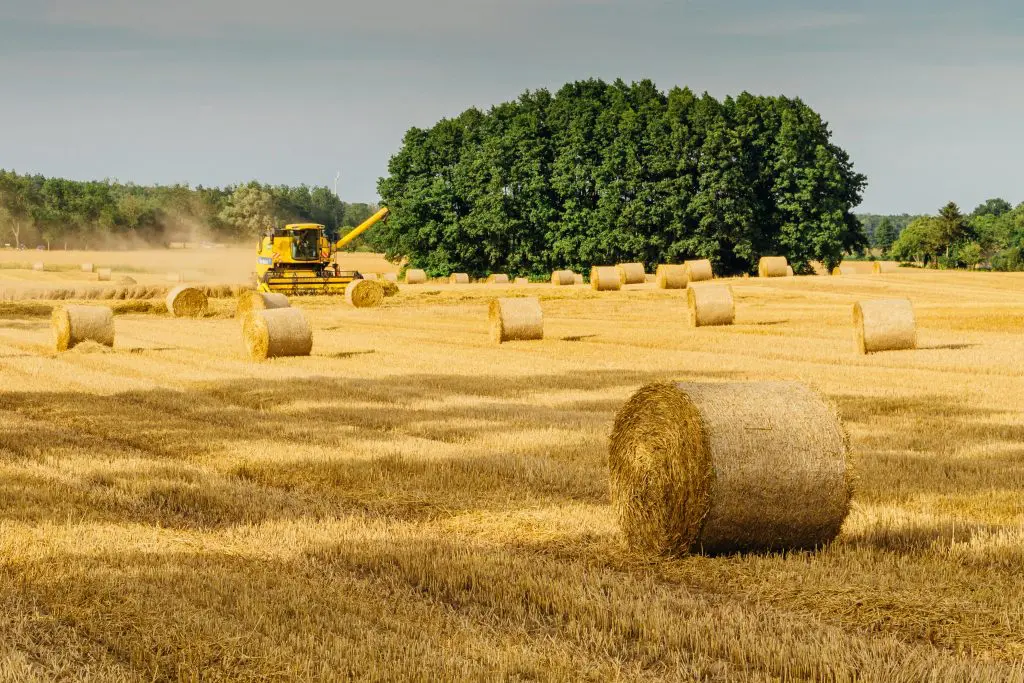
Comhar BIA: New Cooperative Biorefinery Model Feasibility Study Launches in Ireland’s Mid-West A new feasibility study has been launched in Ireland’s mid-west to explore how cooperatives can lead the development of regionally owned biorefineries. The study is part of a broader initiative called Comhar BIA, short for the Collaborative Bio-Industrial Alliance, which aims to unlock […]
A new feasibility study has been launched in Ireland’s mid-west to explore how cooperatives can lead the development of regionally owned biorefineries. The study is part of a broader initiative called Comhar BIA, short for the Collaborative Bio-Industrial Alliance, which aims to unlock new investment opportunities, support Ireland’s bioeconomy goals, and strengthen rural economies.
The initiative is being led by the Irish Co-operative Organisation Society (ICOS) in partnership with Climate KIC, Europe’s climate innovation agency. It is co-funded by the Government of Ireland and the European Union through the ERDF Southern, Eastern & Midland Regional Programme 2021–2027, and also supported by Enterprise Ireland, the South-East Regional Assembly, and the Golden Jubilee Trust.
Biorefineries are key enablers of the circular economy, a model that minimizes waste and maximizes resource efficiency. Instead of treating agricultural by-products as waste, biorefineries valorise them, converting them into valuable energy, materials, and bio-based products. This supports a shift away from the traditional linear model of production and disposal, particularly in rural and agricultural regions.
By creating closed-loop systems, regional biorefineries can help reduce Ireland’s reliance on imported fossil-based inputs, while offering new uses for outputs like slurry, whey, or food waste. This approach aligns with both EU Green Deal priorities and Ireland’s Climate Action Plan 2024.
The Comhar BIA project is designed to assess the technical and economic viability of cooperative-led biorefineries that can convert agricultural and food-processing by-products into high-value outputs such as:
Renewable energy (through anaerobic digestion)
Natural fertilisers
Bio-materials
Food and feed ingredients
Bio-based chemicals
While anaerobic digestion (AD) is the core focus initially, the study will also examine the potential for incorporating other complementary technologies over time.
The project places cooperatives at the centre of the bioeconomy strategy. According to ICOS CEO T.J. Flanagan, this approach ensures a locally led development model that integrates the right feedstocks, technologies, and partnerships tailored to each region’s needs.
“These biorefineries could bring significant economic opportunities for regions while accelerating decarbonisation across multiple sectors,” said Flanagan.
By creating regional, co-owned biorefineries, the project seeks to provide:
New income streams for farmers
Sustainable investment opportunities
Resilient, locally driven industrial infrastructure
Following a competitive expression of interest process, Arrabawn-Tipperary Co-operative has been selected to participate in the initial feasibility study. The co-op was chosen due to:
Its access to suitable feedstock from dairy processing side streams
Its location within a defined rural catchment
This selection marks an important step in validating how co-ops can operate and benefit from bio-industrial infrastructure. It is also expected to serve as a test model for future regional rollouts.
The study will include a techno-economic analysis, conducted by engineering consultancy AtkinsRéalis, with strategic oversight from ICOS and Climate KIC. The study’s core aims include:
Sizing and siting regional biorefineries
Evaluating financing options and business models
Identifying feedstock supply chains and market outputs
Exploring the formation of a shared services entity to support future cooperative-led bioeconomy projects
The study is expected to be completed by late autumn 2025.
Denyse Julien, Project Lead at Climate KIC, described the project as a “bold reimagining” of Ireland’s bioeconomy potential:
“What makes this initiative unique is its cooperative backbone, bringing farmers, processors, local authorities and communities together to co-develop shared bio-industrial infrastructure.”
She added that Comhar BIA represents a scalable model that supports:
Climate action and decarbonisation
Industrial transformation
Rural economic resilience
The momentum around Ireland’s bioeconomy is growing. ICOS has identified several upcoming milestones that will help drive collaboration and investment, including:
Bioeconomy Ireland Week (October 2025)
Global Bioeconomy Summit (2026)
Interest in Comhar BIA has already been expressed by other regions, and additional funding will be sought to:
Finalise engineering and business plans for the first facility
Support future developments
Build a networked shared services model across regions
Comhar BIA represents a new model for bio-industrial development in rural Ireland, one that is cooperative-led, locally driven, and sustainability-focused. With the support of public and private partners, and guided by a shared vision of decarbonisation and regional regeneration, the project could redefine how Ireland builds value from its agricultural resources.
The success of the Arrabawn-Tipperary pilot may set the stage for a broader national network of cooperative biorefineries, delivering long-term environmental, economic, and community benefits.
At All-Ireland Sustainability, we’re committed to building a greener, fairer island, together. Stay informed on the latest environmental initiatives, community action, and policy developments shaping sustainability across Ireland, North and South.
👉 Sign up for our newsletter today and be the first to hear about upcoming events, expert insights, and ways to get involved.
Whether you’re a seasoned advocate or just starting your journey, new members are always welcome.
Subscribe now and be part of the All-Ireland Sustainability Membership.